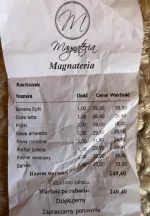Aktywne Wpisy

bolsonn +598
Czaicie? Przyleciała do Polski żeby chodzić po górach z jakimś kolejnym Chadem xddd #lewandowska #lewandowski #p0lka

źródło: temp_file3499780090743698972
Pobierz
JuliuszCheedar +25
Ostatnio wrzuciłem pod #krakow wpis, że niektórych #!$%@?ło, ale nie mogłem znaleźć mojego rachunku. Znalazłem w opiniach kogoś rachunek - jest i 15% doliczone za serwis. Co wy na to? :)

źródło: Zdjęcie z biblioteki
Pobierz




https://link.springer.com/article/10.1007/s12116-009-9040-5#Sec6
#publicystyka #neuropa #neoliberalizm